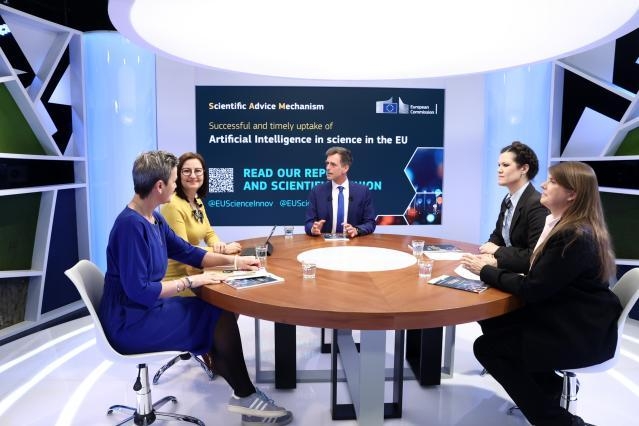On 15 April 2024, Margrethe Vestager, Executive Vice-President of the European Commission in charge of Europe fit for the Digital Age and Commissioner for Competition, and Iliana Ivanova, European Commissioner for Innovation, Research, Culture, Education and Youth, received scientific opinion and evidence review report on “Successful and timely uptake of artificial intelligence in science in the EU” from the SAM (The Scientific Advice Mechanism).
The evidence shows that AI has become a geopolitical asset. Currently, most AI infrastructure belongs to a few companies, mainly in the US and China, and even public research labs depend on them for computing power.
The Scientific Advice Mechanism to the European Commission (SAM) published its advice on the best use of AI in science, which is intended to design and support the overall European Commission’s strategy for AI in research and innovation.
“There is no better way to boost the uptake of AI in scientific research than asking scientists about what they need the most. Not only are these recommendations concrete. Also, they look at multiple aspects which AI and science need to serve us best: significant funding, skills, high-quality data, computing power, and of course, guardrails to ensure we keep by the values we believe in,” Commissioner Vestager said.
The advice addresses the opportunities and challenges of using Artificial Intelligence in science.
“Artificial Intelligence means a revolution in research and innovation and will drive our future competitiveness. We need to ensure its responsible uptake by our researchers and innovators for the benefit of science but also of the economy and society as a whole. The work of the scientific advisors provides us with a wealth of solid evidence and practical advice to inform our future actions,” Commissioner Ivanova said.
Professor Anna Fabijańska, co-chair of the SAPEA working group that reviewed the scientific evidence to inform the SAM recommendations, says that we need to rebalance the situation to boost public research across all disciplines and member states.
“That means giving universities and research institutes across Europe fair access to state-of-the-art AI facilities,” Professor Andrea Emilio Rizzolli, the SAPEA working group co-chair, added.
As part of the new advice, the SAM recommends forming a new European institute for AI in science to provide massive high-performing computational power, a sustainable cloud infrastructure, and AI training programmes for scientists. Alongside these services, a European AI in Science Council would provide dedicated funding for researchers in all disciplines to explore and adopt AI in their sciences. These facilities would also ensure that AI in research aligns with EU core values.
The SAM recommendations say that the EU should prioritise AI-powered research in areas where large amounts of data are available but difficult to interpret, such as personalised health, social cohesion, and the green and digital transitions. Advisors also highlight that it is essential to support new research into the greenest AI algorithms and infrastructure to help manage the environmental impact of the technology.
AI-powered scientific research requires a vast amount of data. That data should be high-quality, responsibly collected, and well-curated, with fair access for European researchers and innovators.
Finally, scientists highlight that future technologies must be driven by people and communities, not only by profit. The EU should promote research on the philosophical, legal, and ethical issues that arise when AI is used in science, as well as the impact of these issues on fundamental human rights, transparency, and accountability.

